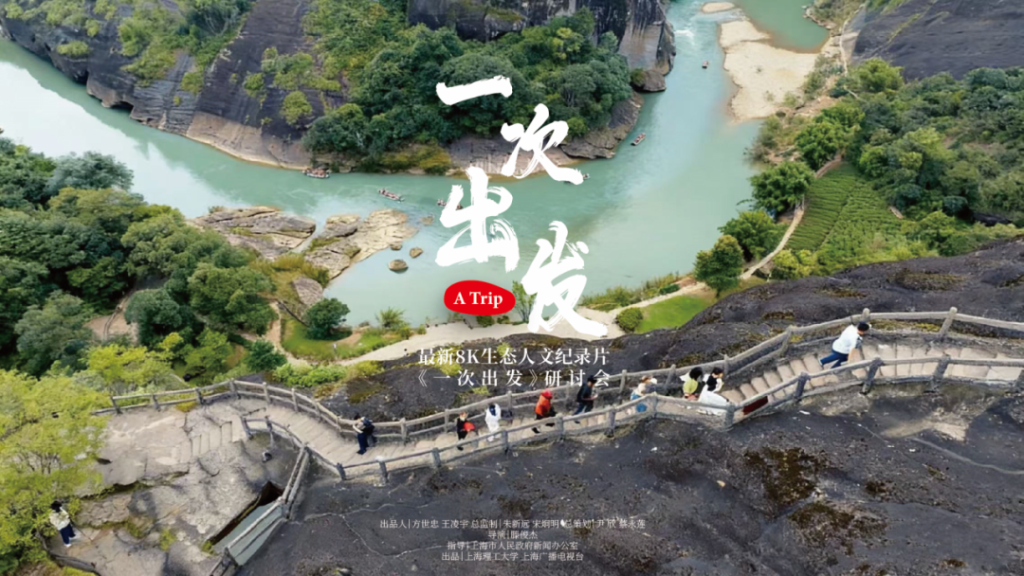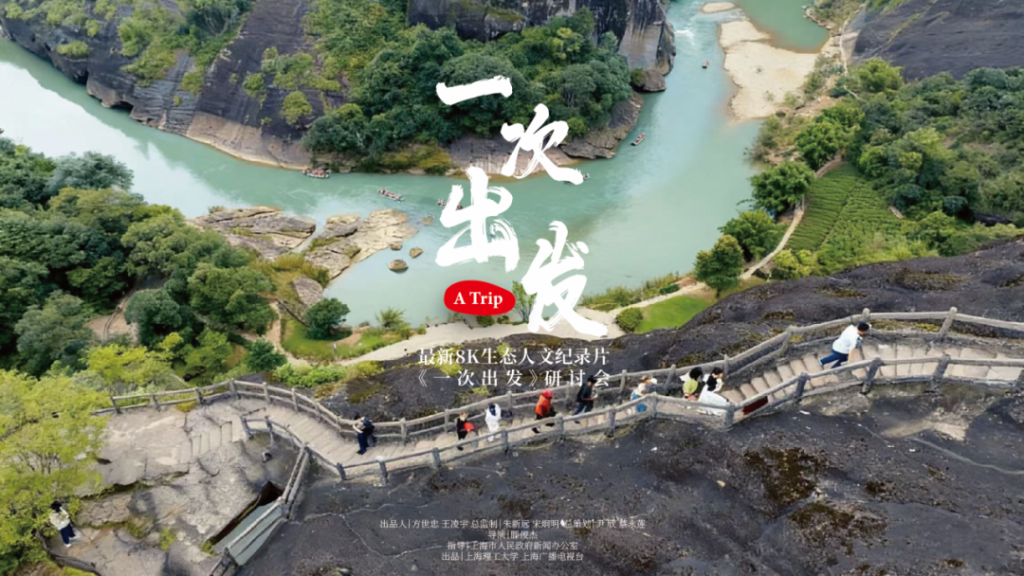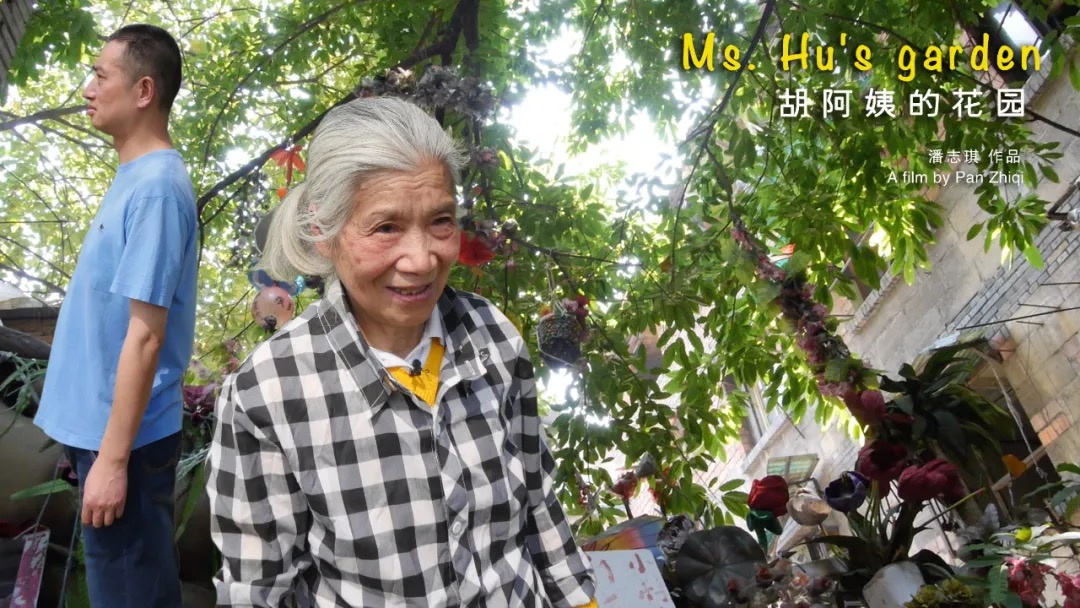
Aunt Hu from Chongqing makes a living by running a small hotel with extremely low prices. Although her life is poor, she sometimes helps her guests out of their difficulties. She also built a colorful paradise with discarded garbage, using this poetic space to achieve self-salvation and comfort her sick son.

Aunt Hu in her own "garden"
Pan Zhiqi captures this elderly Chongqing resident, who has spent half her life cultivating the fragments of her life into a poetic "garden." "Aunt Hu's Garden," which won the Golden Goblet Award for Best Documentary at last year's Shanghai International Film Festival, will be released on October 23rd by the National Art Federation. On October 19th, director Pan Zhiqi visited Shanghai to discuss the touching experiences and reflections he gained from his nine-year journey following this "spiritual aristocrat," a scavenger.

Movie poster for Aunt Hu's Garden
A three-dollar hotel, a transit point for all kinds of life
In 2010, director Pan Zhiqi was invited to Chongqing to attend a film festival hosted by a friend. His friend took him to 18th Ladder, where he was struck by the stark contrast between the cityscape and Chongqing's iconic Liberation Monument. At the time, he was filming another documentary, also focusing on the stories of ordinary people during the era of urbanization. Upon learning that 18th Ladder was about to undergo renovation, Pan Zhiqi wanted to capture the vibrant atmosphere of this unique neighborhood at the time. He couldn't help but imagine what the future held for its residents years from now, so he began planning a documentary about the area.
Here, he met Aunt Hu, a scavenger who ran a dirt-cheap inn. Rooms were as low as 3 yuan a night, and guests often couldn't afford them. Those who lived there were struggling to make ends meet: the disabled, the unemployed, the sick, often even needing her out-of-pocket support. She "picked up" people like she'd reclaimed discarded toys, cherishing them as treasures. She would even replant discarded flower seedlings, saying with a smile, "Abandoned things can survive."
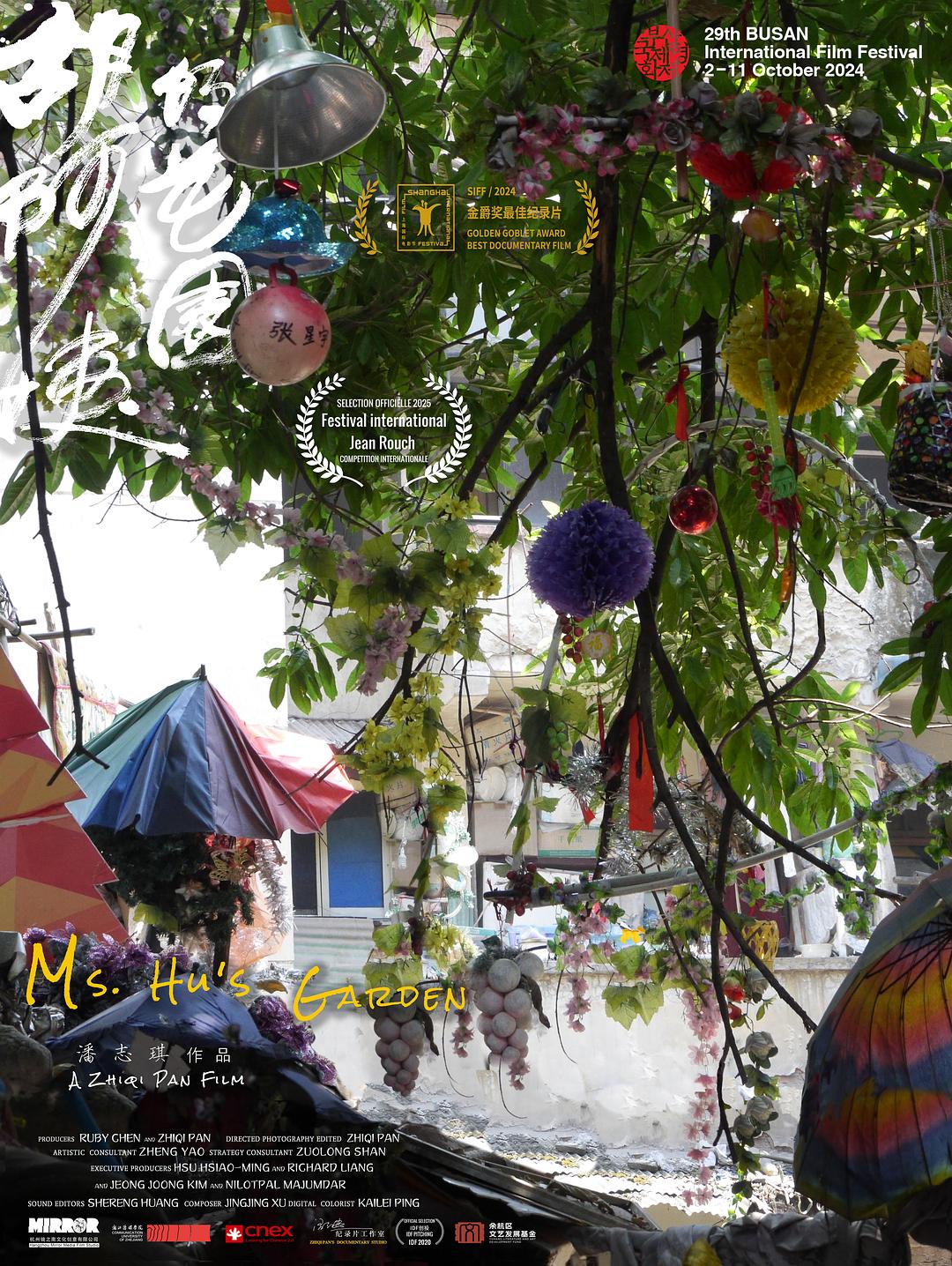
Aunt Hu's Garden
The inn is like a transit point for fate, where guests weather their darkest moments and find the courage to start anew. Aunt Hu often encounters them while scavenging on the streets, casually reminiscing about their past friendships before diving back into the hustle and bustle of the city to continue their own lives.
In the film, Aunt Hu always picks up strange and bizarre "garbage": dinosaur eggs, big mushrooms, various small animal dolls, etc. These items will appear in her backpack. They seem out of place in her living environment, but they complete the externalization of Aunt Hu's spiritual world in a weird and harmonious manner. Even in the perspective of foreign tourists, she is regarded as a "contemporary artist."
"I felt that although she was a scavenger, after several interactions, I felt she was a spiritual aristocrat, truly rich. You'll find her philosophy of life, including her spiritual world, often astonishing." After nine years of filming, Pan Zhiqi didn't turn the documentary into a mere promotional video about "good people and good deeds." Instead, the characters in the film experience their own conflicts and losses, a loss that stems from both individual hardships and the fleeting nature of time. "My mother is the most hardworking person in the world, but also the most foolish." When Pan Zhiqi met Aunt Hu's son, Shaobin, the dimensions and emotions of this story brought out even more gripping family relationships and more conflicted and rich emotions.
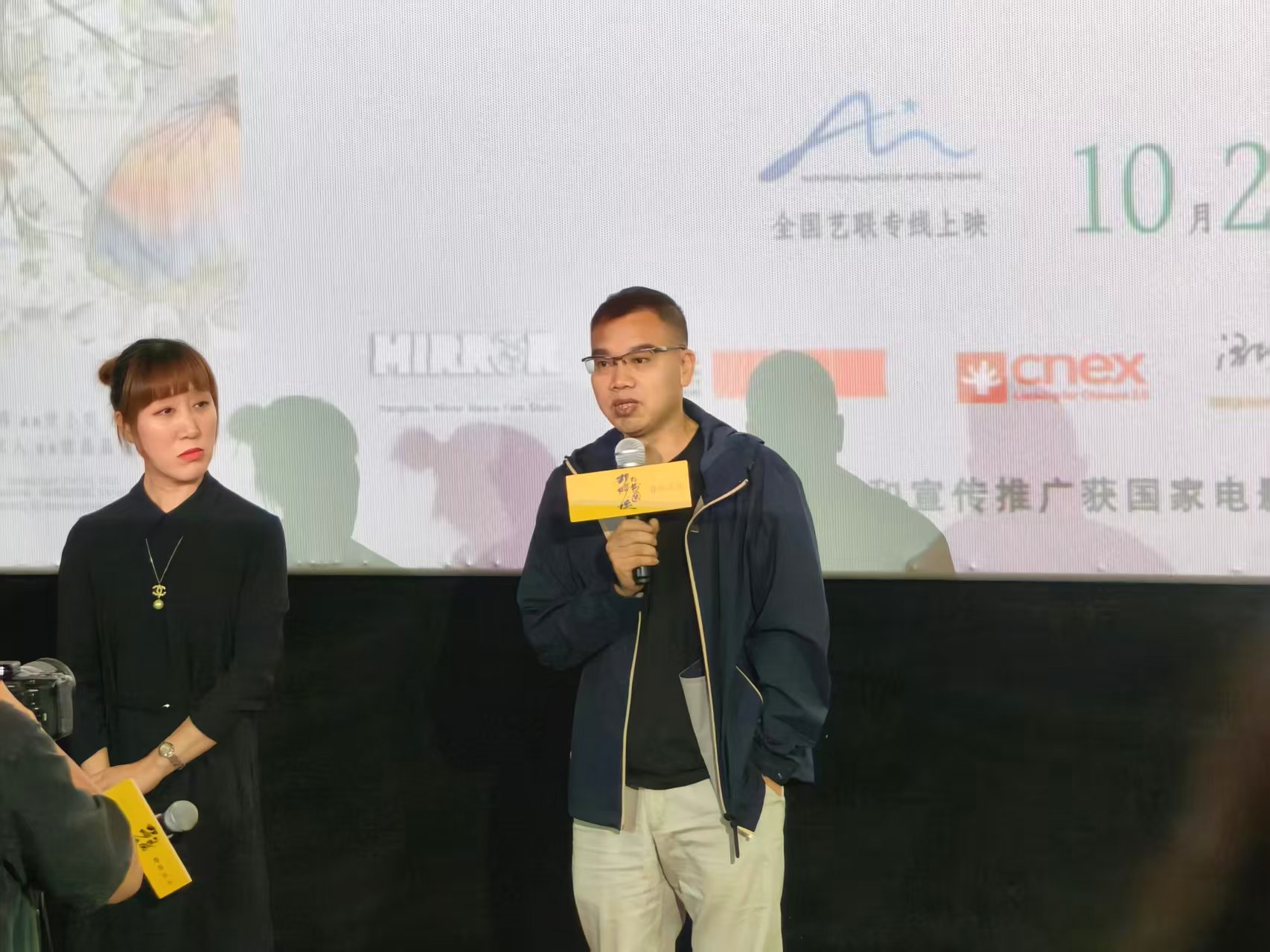
Director Pan Zhiqi
The neglected little people reflect the changes and warmth of the times
After nine years of filming, Pan Zhiqi recorded the "blooming" and "migration" of Aunt Hu's garden.
In 2017, excavators for the Shibati demolition project rolled into the alleys, reducing Aunt Hu's hotel and garden to ruins. The first half of the film shows Aunt Hu climbing up and down the stairs of Shibati. The second half, after moving into her son's apartment, finds her climbing onto a bunk bed. Soon after, the small shop space blossomed again, and Aunt Hu still harbored the thought of opening another hotel.
The film took nine years to shoot, with a massive amount of material. Pan Zhiqi spent a lot of time re-examining and reconstructing the film in post-production. There was no need to deliberately emphasize the story, as long as the character's life was presented, the life would become the story itself.
After the screening, Shanghai film critic Sun Mengjin hailed it as the "best Chinese documentary" she's seen in recent years. While avoiding grand narratives, it focuses on a single, overlooked individual, yet it reflects the transformation of an entire city and the warmth of the times. Sun Mengjin stated that what struck him most was the film's precise focus on "the overlooked in the city's transformation." The protagonist, Aunt Hu, a scavenger, reveals a spiritual world that stands in stark contrast to her "survival predicament." "She is incredibly persistent, even stubborn, in her way of living. She maintains a beautiful garden, and even in her struggles, she helps others like her, even without expecting repayment." He also noted the director's precise portrayal of the mother-son relationship, capturing the complex dynamics of love and resentment within family relationships, creating a flesh-and-blood "sample of ordinary people."
Regarding the dual presentation of "character stories" and "urban changes" in the film, Sun Mengjin gave a light-hearted evaluation. The film did not deliberately exaggerate the grand changes of the city, but used the urban shots as an "implicit background" and always took Aunt Hu's life trajectory as the core: "This 'light' treatment is precisely where the director is sensitive - he pays more attention to the era and society reflected by one person." In today's fast-paced world, someone is willing to spend 9 years to settle down and immerse himself in life to make a documentary. This way of working is even more precious and scarce today.
The film is about to be released. In Pan Zhiqi's view, "This movie is about people, about maternal love, family affection, about the changes of society and times. Every audience will get his own feelings in this film." The film has previously won many professional honors and gained wide recognition at domestic and international film festivals. It not only won the Golden Goblet Award for Best Documentary at the 26th Shanghai International Film Festival, the St. George Award for Best Documentary at the 47th Moscow International Film Festival, and the Silver Award in the International Competition Unit of the 2025 Flaherty International Documentary Film Festival, but was also successfully selected for the Wide Angle Documentary Competition Unit of the 29th Busan International Film Festival, the International Competition Unit of the 44th Jean Rouch International Film Festival in France, the Reality First Unit of the 15th Beijing International Film Festival and many other important film festival units.
